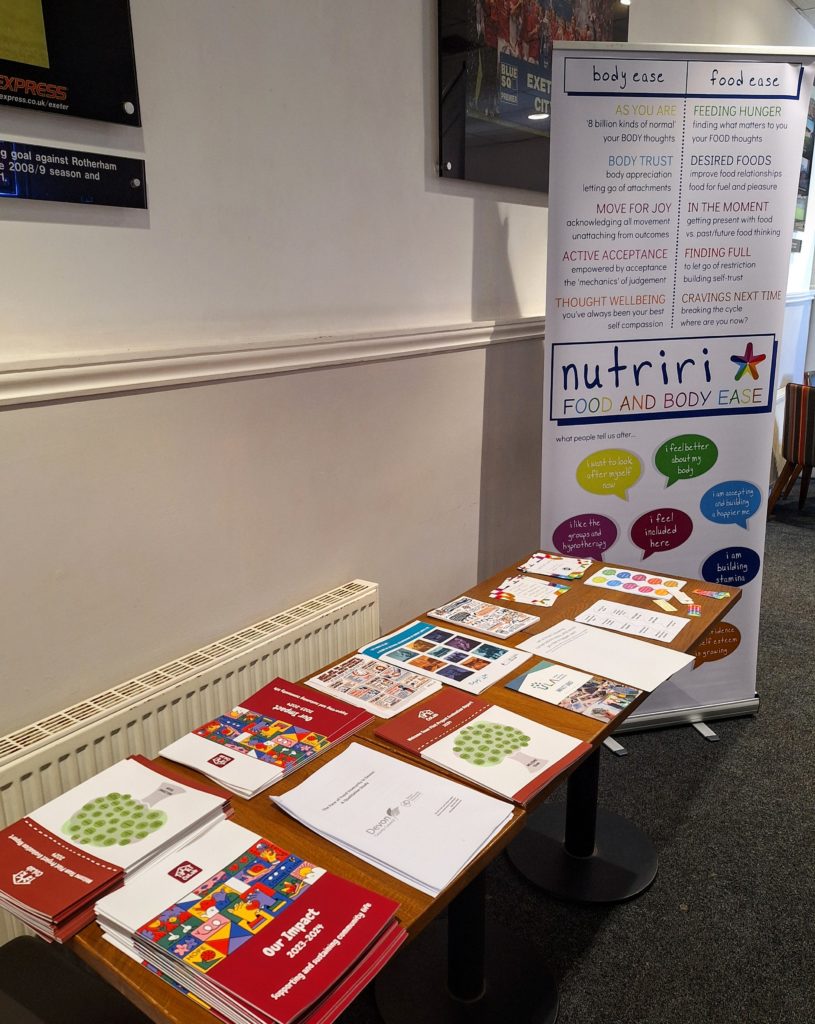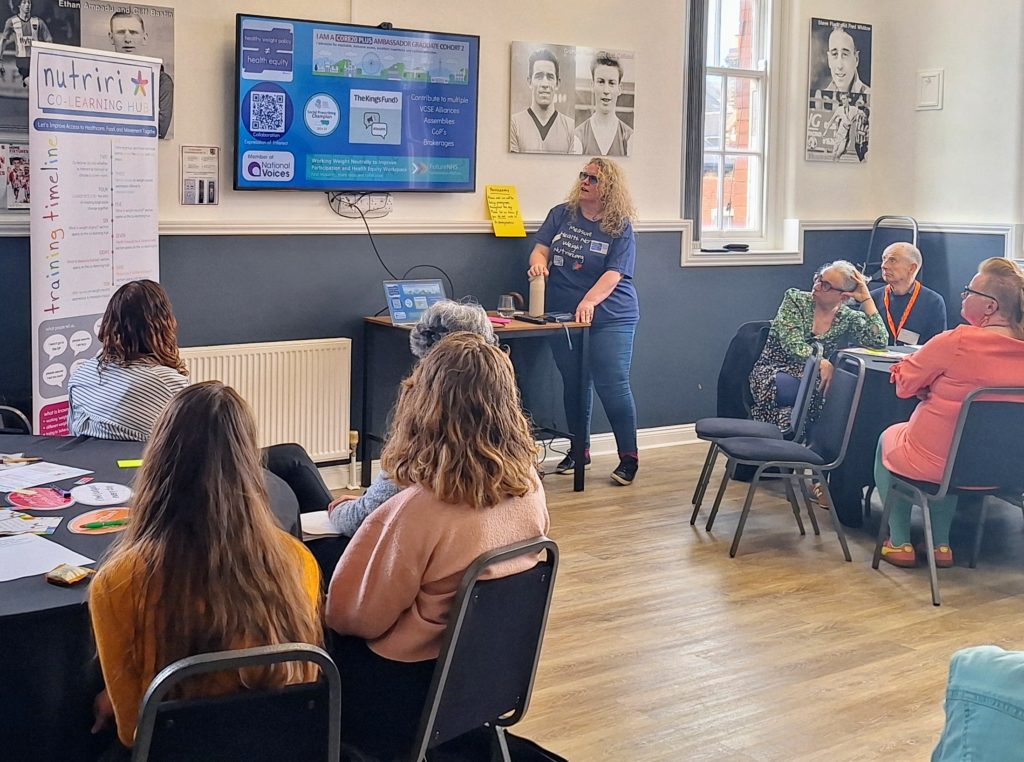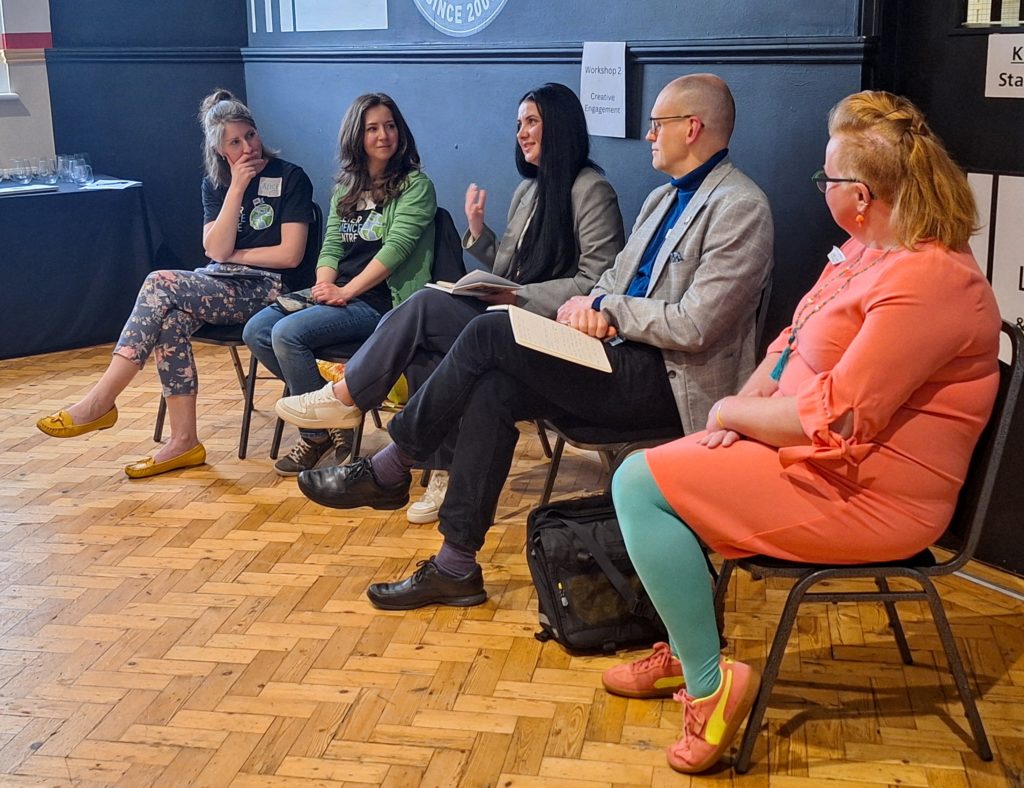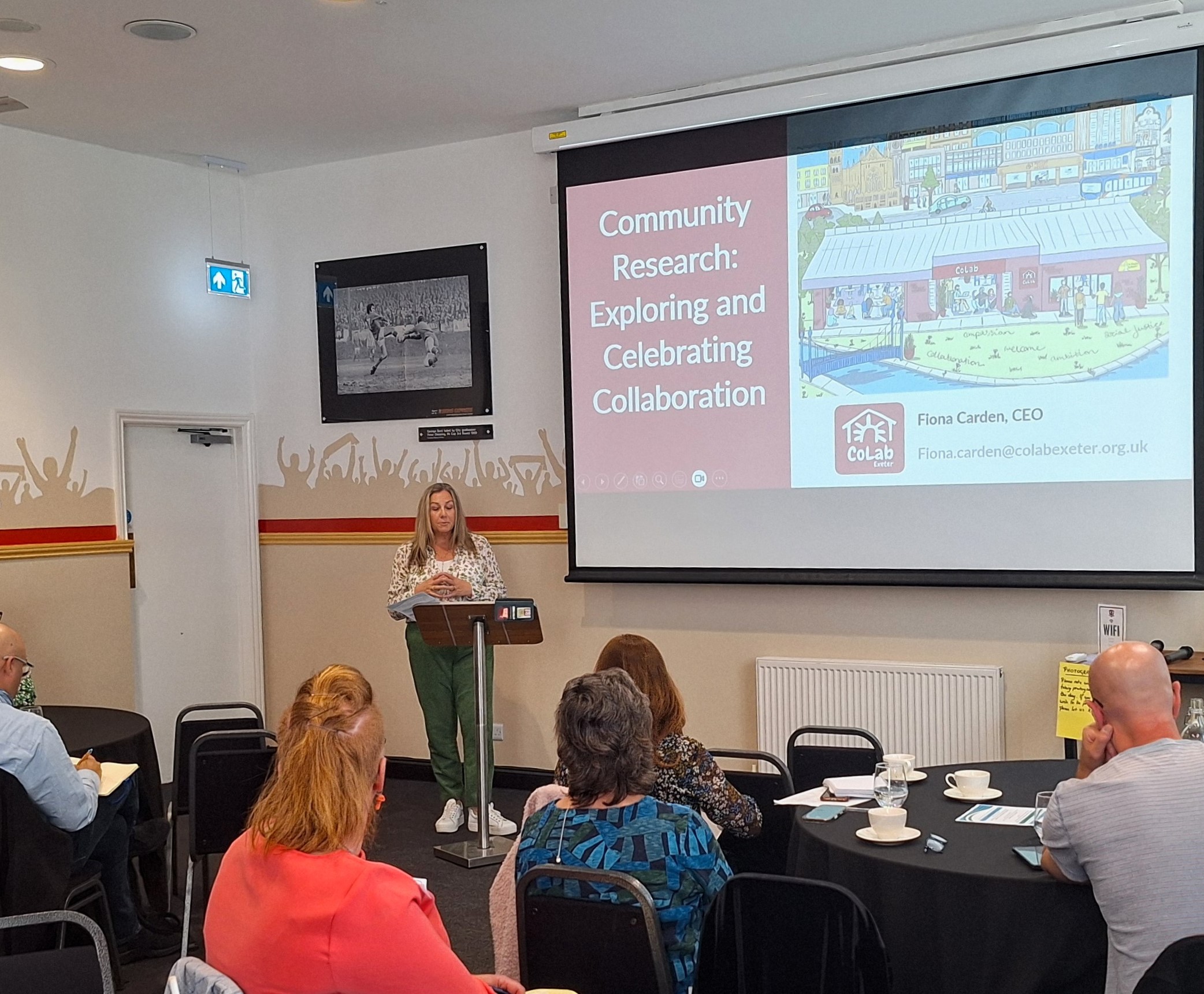Last week, our team had the privilege of co-facilitating ‘Community Research: Exploring & Celebrating Collaboration’, a showcase dedicated to community-based research in the South West. Supported by the University of Exeter and the Devon Research Engagement Network, this event offered people from across the academic and voluntary sectors the chance to connect, and share valuable insights into their work.
With this showcase, we wanted to encourage a dialogue between community groups and academic research. The South West is home to many charity and community organizations, who engage with – or are eager to engage with – researchers, and as a University, we host researchers equally keen to connect their research to their community. Dr Lindsey Anderson and Catherine Hurcombe from the Regional Engagement team worked alongside partners Nicola Frost from the Devon Community Foundation, Tom Cox from Devon Mind, and Sophie Luders from Health Innovation South West. Enthusiasm for the event exceeded our expectations, and was fully booked by attendees from across the Voluntary, Community and Social Enterprise (VCSE) and research sectors.

The day began with a keynote presentation from Fiona Carden, CEO of CoLab, who shared her insights into the importance of prioritising internally led research within community organizations. For CoLab this consists of a two-person research and impact team. Her talk shed light on the importance of developing a culture of learning as an act of empowerment and agency. Specifically, research undertaken should focus on co-production, which emphasises “learning with, rather than reporting to” – one of the core ideas underpinning this event.
This was followed by a film screening, showcasing recent projects supported by the Devon Research Engagement Network. All based around lived experiences, these projects ranged from Waymakers’ work, supporting neurodiverse young people, to Torbay Communities’ ‘Community Conversation suitcase’, a project about palliative care.

Guests were then invited to choose between three thematic workshops: one exploring the benefits of community collaboration in health research; another inviting conversations around men’s mental health; and the third sharing perspectives on community engagement with food security. Academic and community experts from these fields shared their experiences, including representatives from Plymouth’s FoodSEqual, and VCSE Nutriri. To make sure all topics of interest were covered, we invited attendees to submit suggestions via our graffiti wall. These were then used to generate labels for our networking and matchmaking lunch, inspiring conversation around subjects such as families and young people, peer research, and stigma reduction. The lunch also offered attendees the opportunity to share reports and posters on their own projects, and meet with likeminded individuals.

Reconvening in the afternoon, the group heard a plenary address from Robin Jakob and Catherine Cartwright, researchers within CoLab, who gave a valuable talk on the ethical possibilities (and challenges) for community-led research. This was particularly pertinent going into the final workshops of the day, which focussed on the methodologies of community research. Participants were again given the choice of three sessions, respectively addressing participatory approaches to research and evaluation, creative engagement, and involving people with lived experience. Each of these included first-hand observations of these diverse approaches to community research projects, with insights from the University of Exeter’s Centre for Medical Mycology, Exeter Science Centre, and the Devon Research Engagement Network’s community listeners, to name a few.
Discussions were brought to a close by University of Plymouth Researcher-in-Residence, Dr Felix Gradinger, who shared the insights he had gleaned from sessions throughout the day. He highlighted the importance of trust and love, and the neighbourly connections that make community research so impactful.
It is hoped that this showcase is only the beginning of future collaboration across the region, and with so many local groups and researchers getting involved, we have already seen enormous potential to build on these critical conversations.

